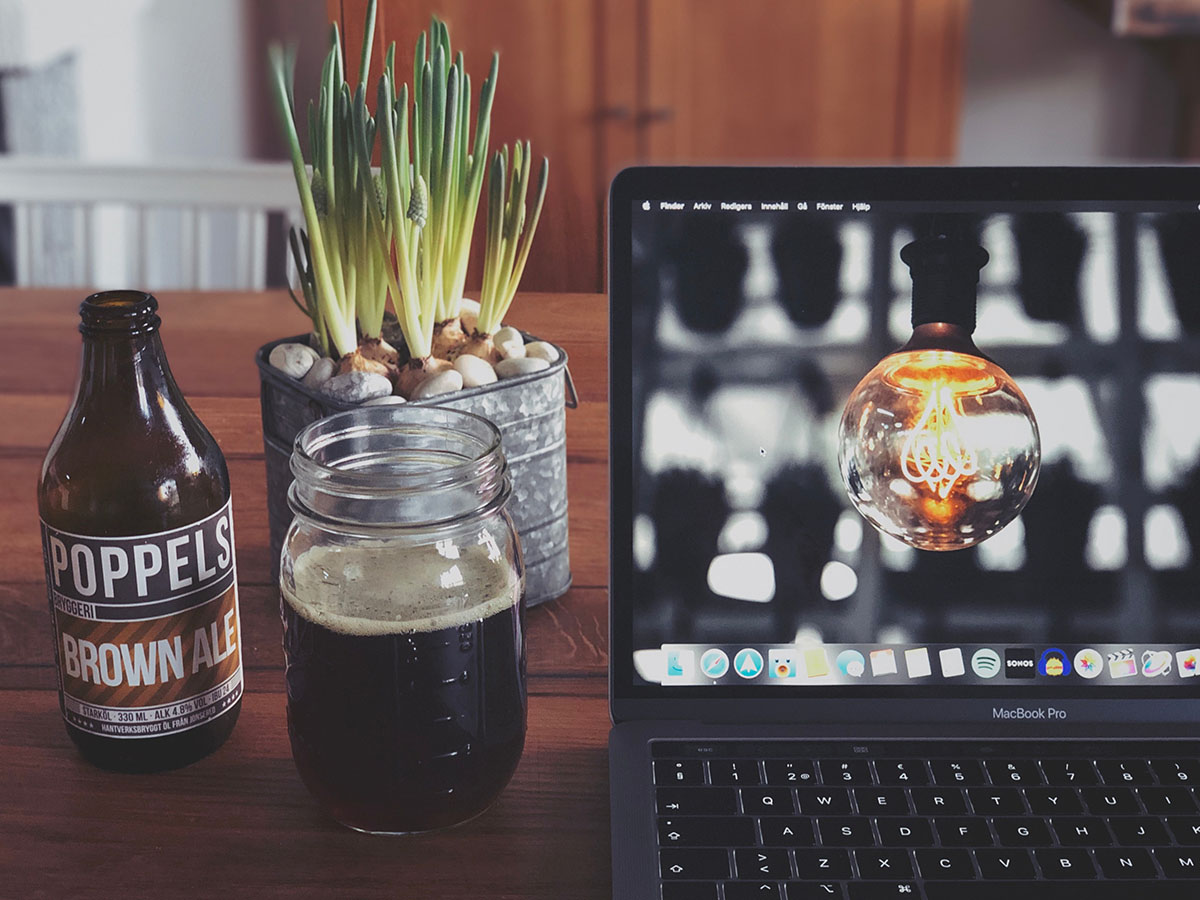Introverts, extroverts and online habits during the coronavirus crisis
April 9, 2020 / 6 min read

Table of contents
- The World Wide Web: An introvert’s dream
- But first of all, what does it mean to be introvert or extrovert?
- How introversion and extroversion affect our lifestyle
- Famous introverts
- How the new coronavirus is changing the internet
- Huge potential for digital creativity
- Tips on how to work better together online
- Conclusion
- Learn more about introversion and extroversion
- Need help going digital? Contact us!
What does it mean to be introvert or extrovert in the time of the new coronavirus lockdowns? Is it easier for introverts to adapt to this new and unexpected situation? In many ways, it probably is. And perhaps this is exactly why the internet is changing so quickly at the moment, making way for a more social world wide web.
Let’s look into the current situation a bit closer and consider what introverts and extroverts can learn from each other’s online behaviour. We'll finish off with a few tips on how to work better together online.
The World Wide Web: An introvert’s dream
In many ways, the development of the world wide web has been an introvert’s dream come true. No need for phone calls! Working from home! All the music, books and films you like available through your computer!
It’s almost as if the internet was built by introverts, for introverts. For everyone who scores highly on the introvert-spectrum, there is nothing too upsetting about the lockdowns.
The current situation is worrying and scary for everyone, of course. But one thing that is not unsettling if you’re an introvert is the concept of social distancing. A bit boring perhaps, but hardly strange or frightening.
For extroverts, however, the thought of spending several weeks on your own probably evokes different feelings. Not surprisingly, over the last few weeks the internet has definitely taken a more social and interactive turn.
 via MEME
via MEME
Let’s look into how life during a pandemic affects introverts and extroverts, and go through a few tips on how to cooperate better.
But first of all, what does it mean to be introvert or extrovert?
The psychiatrist and psychoanalyst Carl Jung developed a theory around the terms ‘introversion’ and ‘extroversion’. He concluded that the basic difference is where people get their energy from and how they react to external impulses:
- Extroverts get energised by interacting with people
- Introverts often feel drained by social interaction and need to recharge their batteries by spending time alone
It is estimated that 30-50% of people can be classified as introverts. But it’s important to remember that nobody is 100% introvert or extrovert, even if most people have a clear tendency towards one or the other.
Even though up to 50% of people have a tendency towards introversion, extroversion is often considered the ideal, at least in our Western society. People who are quiet in social situations regularly receive well-meaning but misdirected advice on how to change and become more sociable and more talkative.
This is a shame, because being an introvert or extrovert has been shown to be a permanent characteristic that can’t be changed. That’s why it’s not a good idea to point out to introverts that they are quiet, asking them to speak more or blaming them for being unsociable – if anything, it’s going to have the opposite effect.
How introversion and extroversion affect our lifestyle
The introvert/extrovert distinction is likely to have an effect on people’s personality and lifestyle. If you feel drained in groups, chances are you are going to avoid or limit some things: Parties of a certain size, public speaking, jobs with a high level of social interaction.
 via MEME
via MEME
And indeed, it seems that introverts and extroverts do tend to choose particular jobs. The job search site The Ladders lists the following jobs as great gigs for introverts: Writer or editor (blogging, technical writing, translation); researcher; data entry; archivist or librarian; programmer; and accountant, bookkeeper, actuary. Extroverts on the other hand may be more drawn towards jobs like public relations; sales; advertising; journalism; radio announcer or TV broadcaster; teacher; litigator/lawyer, event planning, and recruiting.
Famous introverts
Still, even though extroverts and introverts are drawn towards certain jobs, it doesn’t mean that they have to work in those jobs. Here’s a list of a few celebrity introverts – surprising, isn’t it?
- Barack Obama
- Lady Gaga
- Bill Gates
- Keanu Reeves
- Warren Buffet
- Elon Musk
- Johnny Depp
Who would have thought that the (ex-)president of America or Lady Gaga are introverts? The list goes to show that our personality doesn’t have to determine what we do in life. It also shows that it is not always obvious who’s an introvert and who’s an extrovert. It is good to remember that the main difference between the two is whether we feel drained or energised by social interaction, and that nobody is 100% introvert or extrovert.
Extroverts can be shy, and introverts are not always the quiet one hiding in the corner of the room.
 Hardly your typical introvert – Lady Gaga in concert. Free picture from peakpx.com.
Hardly your typical introvert – Lady Gaga in concert. Free picture from peakpx.com.
How the new coronavirus is changing the internet
Moving on to today’s lockdowns and how it’s affecting our online behaviour, here are just a few things I’ve come across through my computer in the last two weeks:
- Netflix parties
- Virtual lunch and coffee breaks
- Online birthday parties
- Live yoga and gym sessions
- Live stream concerts
- Virtual martial arts championships
- Support groups to save local businesses
- Plus an unprecedented number of chat groups on Slack, Messenger, Whatsapp etc – we have to keep up with our interests and hobbies, right?
Viewed from the introversion/extroversion perspective, most of these things cater to extroverts and their need for social interaction. But as the lockdowns continue, I’m sure they will be appreciated by many introverts too (nobody’s 100% either way, remember).
Huge potential for digital creativity
Last week, I tried a live fitness class on Facebook, provided by the Warsaw gym Zdrofit. Over 800 people followed the class – pretty amazing when you consider that many gyms are limited to 50 people or so per session.
Also, I bet that all the things we have seen in the last few weeks are just the beginning. It seems clear that even after the crisis, we can’t just go back to the same life we had before. The future will be a mix of real-life meetings and immersive online experiences, with huge potential for new digital solutions.
Once the technology is improved to provide better immersive experiences, some people may even prefer events online instead of in person. Not to mention how helpful it will be for everyone who struggles to attend live events anyway (think old people, disabled people, sick people and parents with young kids, for example). Zdrofit and everyone else who’s offering digital alternatives would be crazy to stop what they’re doing when the lockdowns are over.
Tips on how to work better together online
As the internet is getting more sociable, and many of us are getting used to working from home – not just once in a while but every day – it can be good to remind ourselves of the introvert/extrovert distinction.
Our position on the introvert-extrovert spectrum affects not just our personality but also how we prefer to work with people.
Consider these things:

In general, introverts and extroverts can work better together by keeping these traits in mind. For example, if you want an introvert to do something for you, there is usually no need to go through everything on the phone – just send them the information you have and they will look into it. And reversely, if you need something from an extrovert, they may not appreciate a bunch of files in an email instead of a real-life conversation.
 via MEME
via MEME
As somebody who scores 69% on the 16 personalities test, here are a few things to keep in mind if you know that a bunch of introverts will join that online meeting:
- The more people that are involved in a call, the less the introverts will contribute. Tell them that they can get in touch after the meeting if they want to add anything to the subject.
- If you ask an introvert to spontaneously hold an online meeting or presentation, they will probably freak out and not be at their best.
- As much as possible, give introverts time to prepare before the call.
- During the call, remember that they might need more time than extroverts to think/speak.
- If they can choose between IMs and online calls, many introverts will pick IMs. Just so you know :)
Conclusion
Introverts may not be as quick as extroverts to join in that Netflix party. Or will prolonged lockdowns bring out the need for social interaction even in the most hardcore introverts (and reversely, will extroverts learn to appreciate solitude)?
Perhaps the combination of the traditionally introvert internet with the new social elements from a safe distance will be the perfect compromise – a place with lots of options for both introverts and extroverts?
Only time will tell, but for sure we can expect lots of new creative online solutions in the near future!
If you found this article interesting, you can check what else Anja has written about here.
Learn more about introversion and extroversion
The 16 personalities test
Not sure if you’re introvert or extrovert? Take this free 15-minute test to find out.
Articles
Definition and guide to introversion
What introverts can teach us about being alone
Videos
The quiet power of introverts (3,5 minutes)
Susan Cain TED talk (18,5 minutes)
Need help going digital? Contact us!
Are you looking for an agency that can help you optimise your digital solutions? At Making Waves in Krakow, you will find a sweet mix of introvert and extrovert developers, designers and content creators who happily spend their days creating digital products and services.
Give us a call or drop us a line to discuss how we can help you optimise your digital efforts!
Author

Anja Wedberg
Senior Content Editor
Anja is a Senior Content Editor with a background in translation, marketing and web publishing. She spends most of her spare time fighting, either with new karate moves or with Polish consonant clusters. Check out the rest of her blog articles at medium.com/anja.
Related articles
![NoA Ignite's team on Poland Business Run]()
January 4, 2024 / 2 min read
Sharing is caring: NoA’s 2023 CSR initiatives
As the year comes to an end, we all naturally reflect on it. We ask ourselves, "What good have I done this year?" At NoA, we're no different. Let's take a look at some of the...
![A man in a stairwell, wearing a jacket with the NoA Ignite logo.]()
October 31, 2023 / 3 min read
Putting people first: candidate experience at NoA Ignite
Nowadays, candidate experience has become a popular topic. However, it’s frequently neglected by employers. Read the article and discover our approach.


